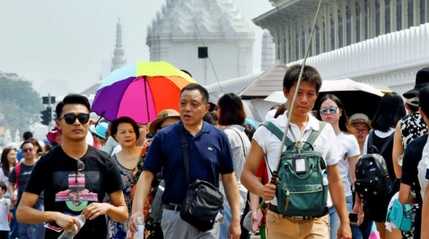
QENA, Egypt, Mar 18 (NNN-MENA) – Egypt is holding more cultural festivals and artistic activities at its various archaeological sites, with the aim of promoting ancient heritage and attracting tourists, according to Egyptian officials.
In Feb and Mar, at least five cultural and artistic activities were held in Upper Egyptian provinces, that boast the majority of the country’s antiquities and temples.
The last event was concluded last Saturday, at the Abydos temple, in Sohag Province.
Also in Mar, one festival for music and singing was launched in Dendera Temple, in Qena, and Luxor city, hosted by the African Film Festival with the participation of 35 countries.
The activities also included the Aswan International Festival of Culture and Arts, that arranged a captivating ceremony in Abu Simbel temple, and the Aswan International Women Film Festival. Both were held in Feb.
“Celebrating cultural events is part of a promising plan by the Ministry of Tourism and Antiquities for 2022, to hold a variety of events across Egypt to promote cultural tourism,” Mostafa Waziri, secretary-general of Egypt’s Supreme Council of Antiquities, said.
The cultural and artistic activities were presented at archaeological sites as a way to “encourage Egyptians and foreigners to see the great ancient Egyptian civilisation,” said Waziri.
During the music festival in Dendera Temple, several basements and side rooms were opened for the first time to visitors, he noted.
Dendera Temple was built for Hathor, the ancient Egyptian goddess of love, beauty, music, dancing, fertility and pleasure, and is now one of the best-preserved ancient temples in the country.
The Egyptian Opera House has also played an active role in organising some of the festivals.
“The Opera House and the Ministry of Culture are enthusiastic about transferring the various forms of art presented in Cairo, to the audience of southern Upper Egypt,” said Chairman of the Cairo Opera House, Magdy Saber.
Nearly 15,000 people attended the concerts in Dendera and Abydos temples, according to Saber.
“The unprecedented large number of spectators means people in Upper Egypt are thirsty for carnivals,” Saber noted.




